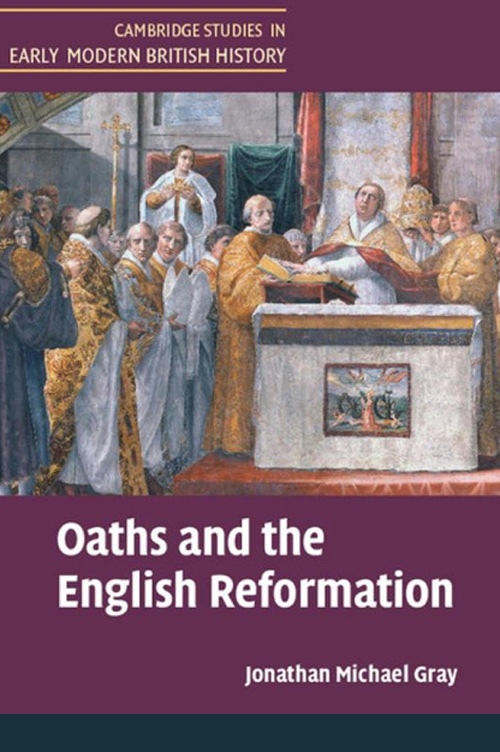Oaths and the English Reformation
Review

Jonathan Michael Gray, ‘Oaths and the English Reformation' (Cambridge, 2013), pp. 272
ISBN: 978-1-107-01802-0
Price: £60.00
In this monograph, Jonathan Gray explores the significance of oaths and oath-theory in the implementation of the English Reformation. He argues that oaths were integral to the process of reform and that an analysis of their role will shed new light on both the agency of the English people and the personality and agenda of Henry VIII.
The 1st chapter addresses the concept and context of swearing oaths. In particular Gray explores when it was appropriate to swear an oath, how it was done, and for what purpose. Having established this background, in the 2nd - 6th chapters he explores what oaths the English people were actually subjected to (and whether certain figures were targeted over others); the motivation(s) driving the tending of oaths; the degree to which taking an oath was a negotiable process; the limits of negotiation and equivocation and, finally, the use and decline of oaths as instruments in heresy trials.
This is a well written and clearly argued work, which engages with contemporary scholarship on Henrician England. Gray advocates the ‘Henry was in charge' position, arguing that rather than being a half-hearted fait accompli, the King's use of oaths indicates his determination to abrogate papal authority in his domain. His examination of the tending of the Oath of Succession emphasises this point. Engaging with the ‘popular agency' debate, Gray notes that most people seem to have accepted the oath because (and only because) they believed the King's intentions to be conservative. When this proved not to be the case, Gray argues, Henry's subjects rose in rebellion, seeking to subvert his religious policy and renegotiate the terms on which they had pledged their loyalty. Indeed, the rebels themselves utilised oaths in pursuit of these objectives. This instance perhaps best illustrates Gray's final point regarding the legacy of oaths in English history. Whoever swore an oath gained access to an unassailable moral authority - they were, fundamentally, an egalitarian instrument. More significantly though, swearing an oath obliged a person to make their own decision on an issue (and abide by it). In that process, one could discern the beginnings of political and social individualism.


